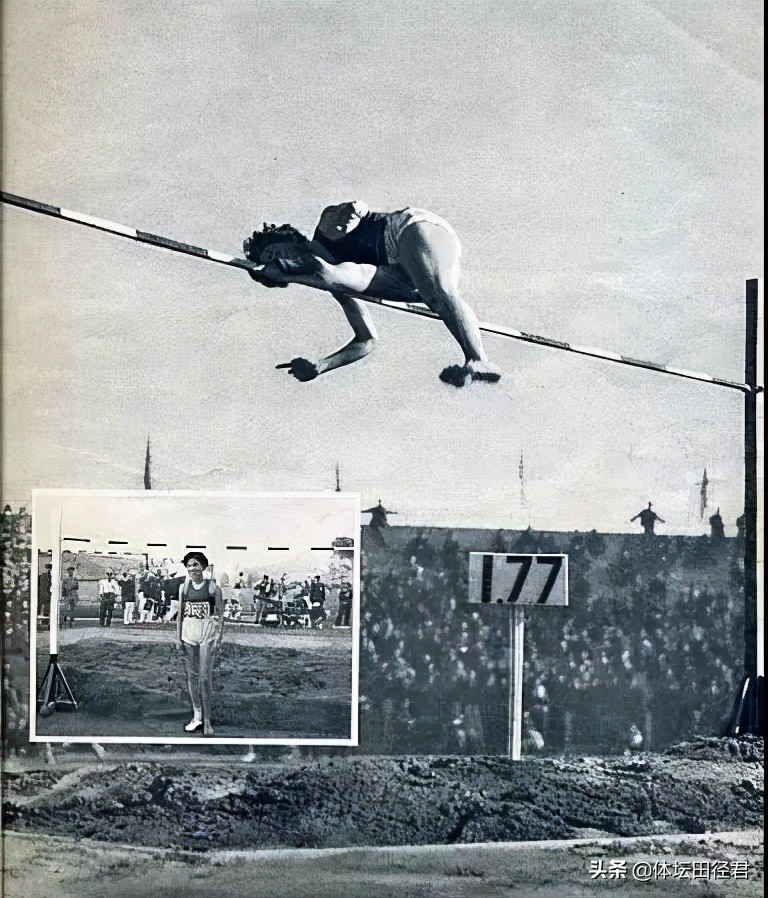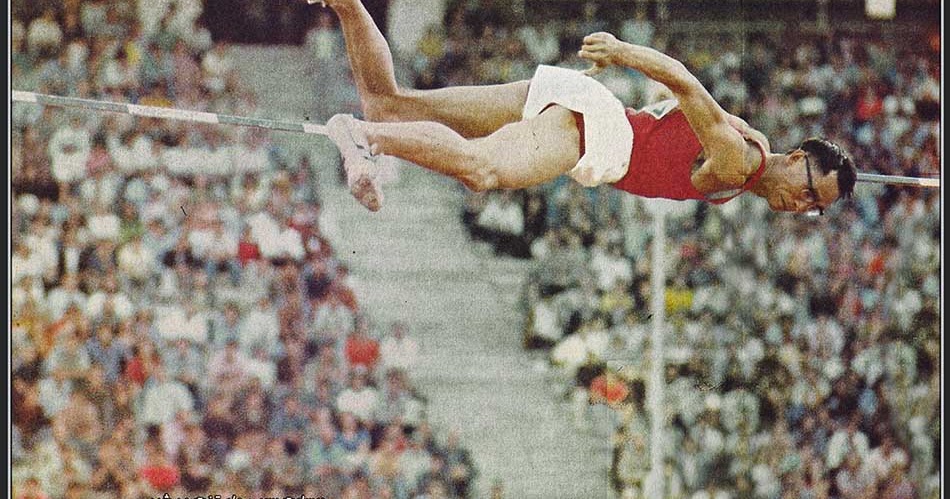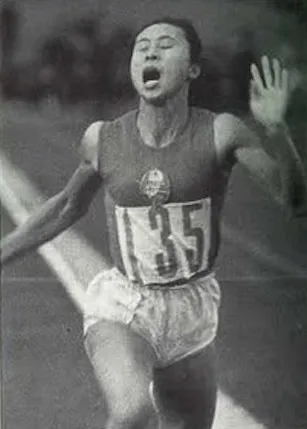I was intending to write this article ever since I read that Nina Schultz, a canadian heptathlete who was silver medalist at the 2018 Commonwealth Games, changed her allegiance to China and was going to represent the latter in the Tokyo 2020 Games as Ninali Zheng.
She did indeed participate in the olympic heptathlon where she finished 10th. (Had she obtained a better result in the javelin throw she could have climbed even up to the 6th place).
She explained her rationale behind her change of allegiance, as a tribute to her grandmother, Zheng Fengrong. Where it not for the brouhaha around Ninali's decision, very few would remember the name of Zheng Fengrong (World Athletics refer to her as Cheng Feng-Jung). She was a top quality high jumper and would have been a favourite for the 1956, Melbourne, Games. Unfortunately China boycotted the Games (a boycott that ended only in 1984 and the Los Angeles Olympics). Mildred McDaniel went on to win the olympic high jump event with a 1.76 m world record And the following year Zheng did break it (it had in the meantime been equalled by Y. Balas) with 1.77 m.
She went on to participate in chinese competitions winning national titles in the high jump and the pentathlon. She won silver in the 1963 and gold 1966 in the GANEFO high jump as well as gold in the pentathlon in both editions, and a bronze in the 80 m hurdles. (The GANEFO, the "GAmes of the New Emerging FOrces", were introduced in 1963 and were particularly short-lived: they were discontinued after the second, 1966, edition).
There is an interesting note accompanying Ni's performance. After his successful jump his comment was: “If my jumps were as high as the thoughts of Chairman Mao, I would need a fireman’s ladder to measure them”. (While Ni could not have his name in the official record book, another chinese did succeed a decade later: Zhu Jianhua who between 1983 and 1984 improved the record thrice with 2.37, 2.37 and 2.39 m. Zhu won bronze in both the 1983 World's and the 1984 Olympics). Ni did also participate in the GANEFO winning both times with a quite respectable 2.27 m the second time (and 32 cm better than the silver medalist).
She came into the limelight in 1960 when she broke the 400 m world record with 53.0 s. She equalled this time in the Znamensky Memorial competition in Moscow in 1962. Neither of these records was ratified. On the contrary her 51.9 s record established later the same year became an official world record and was not beaten till those memorable 1969 European Championships in Piraeus, where N. Duclos and C. Besson ran in 51.7 s. Sin had in the meantime improved, unofficially, her records to 51.4 s (during the 1963 GANEFO) and to 51.2 s a year later in Pyongyang . Sin was also an excellent 800 m runner but none of her world records was homologated: she registered a 2:01.2 in 1961, 1:59.1 in 1963 during the GANEFO and finally 1:58.0 in 1964 (to compare to Ann Parker's 2:01.1 during the Tokyo Olympics of the same year). The GANEFO were not simply a competition not approved by the IAAF but one which was seriously frowned upon to the point that the GANEFO participants were suspended from the Tokyo Olympics. So when Sin arrived to Japan in order to participate in the Games she was driven back and could only spend a few minutes with her father in the airport. (They had been separated during the Korean War, Sin remaining in North Korea while her father lived in South Korea).
Speaking about Sin's father there is an interesting story related in an article on gender verification in sports published in Time magazine in 1966. According to this article an old man living in South Korea claimed that Sin is his son, who had disappeared during the war. What is really funny is that I found the same allegations in a romanian article where they talk about the "10 women-men in the history of the Olympics" (although some of the athletes cited in the article, including Sin, haven't participated in the Olympics). And the last name in the list is none other than Iolanda Balas, the great romanian high jumper. The article is clearly inaccurate since it states "after the controls were implemented in 1960, the romanian Iolanda Balas refused to compete in the Olympics". Balas did win the 1964 Olympics in Tokyo with a 1.90 m jump.






No comments:
Post a Comment